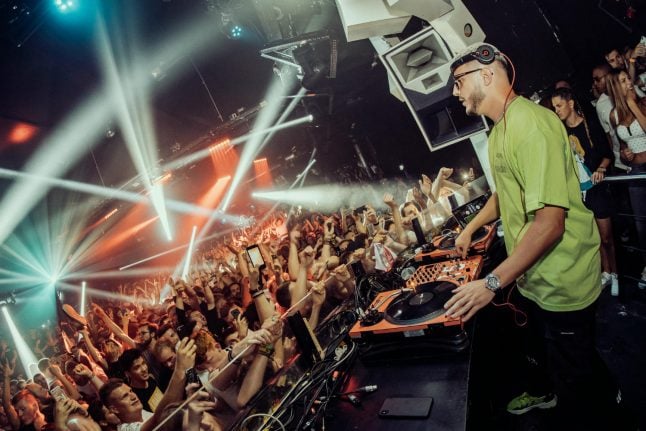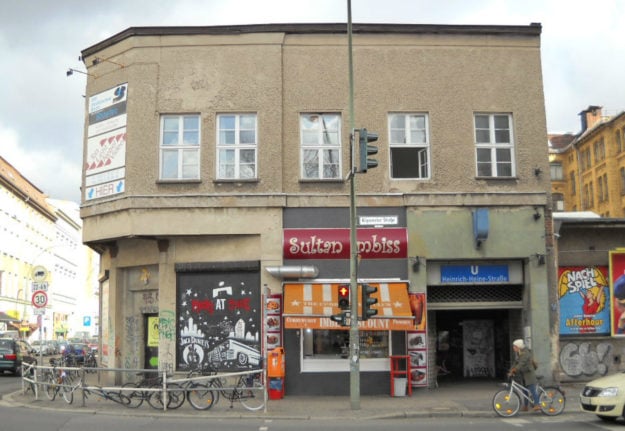In the worldwide overall ranking, the Cologne club ranked eighth, and the Berghain only tenth.
The Bootshaus is situated in a remote shipyard under a bridge which stretches over the Rhine river in Cologne.
Word has gotten around. On a sizzling summer evening, cars with license plates from Berlin or France can be found in the parking area.
Kevin and Thomas drove here with three friends from their home village in Luxembourg. Two and a half hours there, four hours celebrating, two and a half hours back.
“If you follow the house scene, you know the Bootshaus – even in Luxembourg,” says Kevin. “Of course, the new club ranking was also a reason for us to come here,” adds his friend Thomas.
The men wanted to see for themselves.
Approximately half of all visitors to the up-and-coming club are not from Cologne, according to estimates by the operators.

Inside the Bootshaus as DJ Snake is on stage on July 8th.
An unusual location
In Cologne, most of the nightlife is centrally located on the “Party Mile” in city centre, whereas Berlin's is still largely dominated by scattered clubs in abandoned buildings in the former east: Berghain, Tresor and Sisyphos are the headliners.
But Cologne's Bootshaus, situated a good half-hour away from the city centre, is different.
First you have to travel a half hour from the centre, before crowssing the Rhine to the “Schäl Sick”, the “wrong side” of the river in local dialect. The last few hundred meters through the gloomy industrial area have to be embarked upon by foot. Then finally: the Bootshaus – which used to be an actual boat house.
The former industrial area might be reminiscent of the one surrounding Berlin’s Berghain, but there are some major differences between the two clubs.
In the Berghain, the bouncers are notoriously exclusive, turning away visitors on a whim. On the other hand, anyone who wants to can enter the Bootshaus – although its smaller dance floor means that there is only room for 1500 people at a time.
SEE ALSO: Website helps 'train' users to get into Berghain
Most of the tickets are sold online in advance – which is also untypical of clubs – just like at concerts.

Entrance to the Bootshaus. Photo: DPA
At the door nobody is rejected because of their attire, say the operators, only if they are too drunk or aggressive.
Some accuse the club of being too mainstream. Yet club owner Fabian Thylmann thinks the criticism is unjustified: “We play six or seven different styles of music, with as much esoteric as popular. There should be something for everyone.”
Berlin no longer number one?
Berlin has often been considered the number one city when it comes to clubs, which had a lot to do with the historically unique conditions: the fall of the Berlin Wall, unresolved ownership issues and authorities who have more important things to do than to impose regulatory requirements down to the last detail.
SEE ALSO: Berlin clubs – the 10 most notorious and famous
Berlin has recognized the value of its nightlife with its techno-culture, which has been a dominant tourist and culture attraction for more than 25 years.
However the scene is struggling with gentrification, high rents and stricter conditions.



 Please whitelist us to continue reading.
Please whitelist us to continue reading.
Member comments